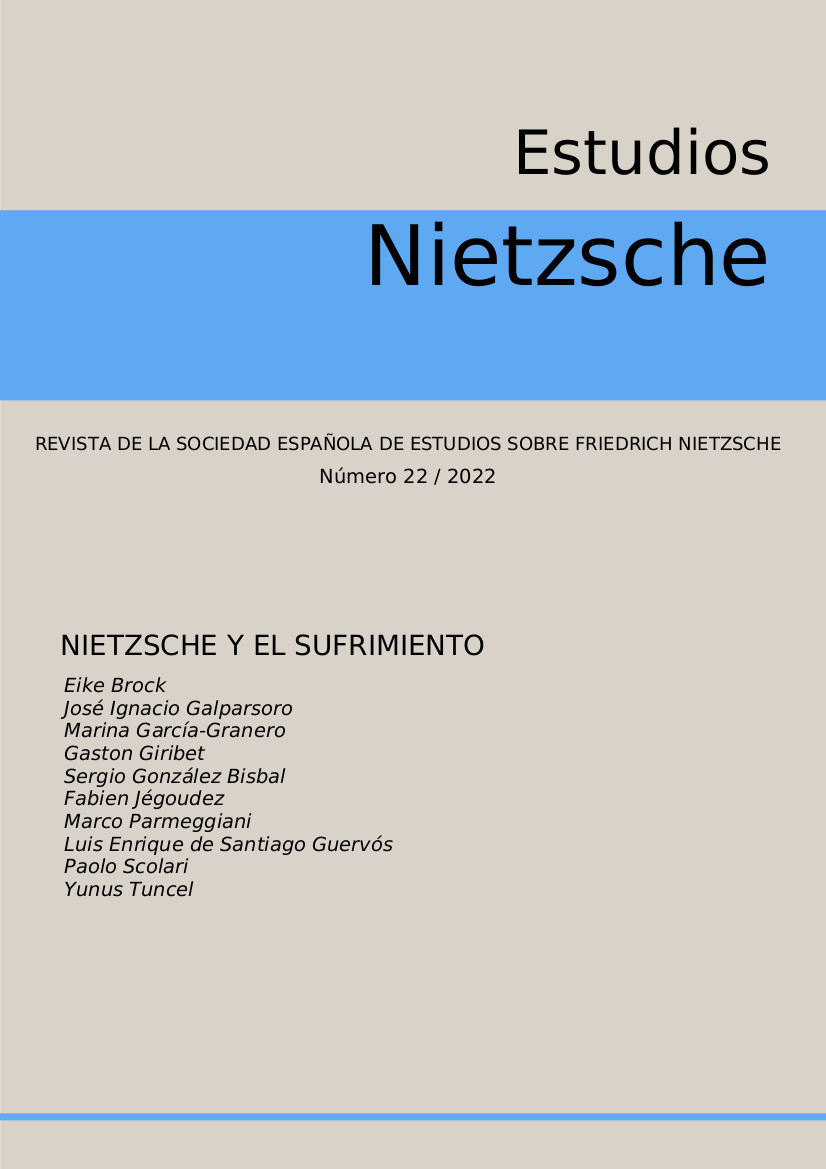On the Greek state, the notion of "the dignity of work", and the relationship between political instinct
DOI:
https://doi.org/10.24310/EstudiosNIETen.vi22.12292Keywords:
Hannah Arendt, Friedrich Nietzsche, Art and politics, Greek stateAbstract
This work aims at establishing a connection between some central points of Hannah Arendt's The Human Condition and a youthful text by Friedrich Nietzsche entitled The Greek State. Although the choice of these pieces finds its reasons both in the differences between them and in their points of contact, we consider that the most natural articulation is to start by mentioning some of the latter: The emergence in the Modern Age of the idea of ??“dignity of work”, of what Arendt would call “the theoretical glorification of work”, is perhaps the first of these points of contact, and this provides us with a new branch from which to grasp to advance in establishing a deeper connection between the two works. The role of slavery in ancient Greece, the figures of the slave and the free man, the schism between the weighting of the artist's work and the contemplation of the work, and the relationship between state and art are the neuralgic points that, from a Or otherwise, both texts present as part of their argumentative skeleton and that invite comparative analysis.
Downloads
Metrics
References
ARENDT, H., La condición humana, Paidós, 2019.
ARENDT, H., Crisis de la república, Trotta, 2015.
ARENDT, H., Essays in understanding 1930-1954, Schocken, 2005.
ARENDT, H., The human condition, The University of Chicago Press, 1998.
NIETZSCHE, F., Ensayos sobre los griegos, Godot, 2016.
NIETZSCHE, F., El nacimiento de la tragedia, Alianza, 2000.
NIETZSCHE, F., Die Geburt der Tragödie. Oder: Griechentum und Pessimismus, 1872a.
NIETZSCHE, F., Der griechische Staat, (1872b).
STRONG, T., English translation of Nietzsche’s «The Greek State», Ashgate, 2009.
STRONG, T., Introduction to «The Greek State», en Nietzsche and the politics, Ashgate, 2009.
Downloads
Published
How to Cite
Issue
Section
License
As of issue 21 (2021) this journal is published only in open access (diamond route).
From that number 21, like the previous numbers published in NIETZSCHE STUDIES, they are subject to the Creative Commons Acknowledgment-NoComercia-ShareIgual 4.0 license, the full text of which can be consulted at <http://creativecommons.org/licenses/by-nc-sa/4.0 >
It is the responsibility of the authors to obtain the necessary permissions of the images that are subject to copyright.
This work is licensed under a Creative Commons Attribution-NonCommercial-ShareAlike 4.0 International License.
Copyright generates two different rights: moral rights and patrimonial rights that EJFB recognizes and respects. Moral rights are those relating to the recognition of the authorship. They are rights of a personal nature that are perpetual, inalienable, unseizable and imprescriptible as consequence of the indivisible union of the author and his/her work.
Patrimonial rights are those that can be derived from the reproduction, distribution, adaptation or communication of the work, among others.







11.png)
